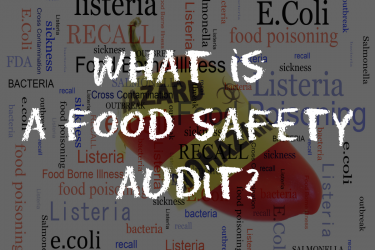Eating disorders refer to eating habits that are persistent and can have a serious impact on your health, emotions, and ability to perform in other areas of your life. Anorexia nervosa and bulimia-nervosa are the most common eating disorders.
Many eating disorders focus too much on the body’s weight, food, and body shape. This can lead to dangerous eating habits. These eating habits can have a significant impact on your body’s ability for proper nutrition. Addiction and eating disorders often go hand in hand. Both can cause damage to the heart, digestive system, and bones.
Eating disorders are most common in teens and young adults, but they can also develop at any age. You can get better eating habits and even reverse the effects of eating disorders with treatment.
Symptoms
Symptoms vary, depending on the type of eating disorder. The most common eating disorders are anorexia nervosa and bulimia nervosa. Rumination disorder, restrictive/avoidant foods intake disorder, and other eating disorders are also common.
Anorexia Nervosa
Anorexia Nervosa (pronounced an-o-REK’see-uh), also known as anorexia, is a potentially fatal eating disorder that causes extreme weight loss, fear of gaining weight, and distortions in body or shape. Anorexic people make extreme efforts to control their weight, which can often lead to significant health problems and disrupt their daily life.
Anorexia is a condition in which you restrict calories or use other methods to lose weight. This could include excessive exercise, diet aids or laxatives, vomiting after eating, and excessive exercise. Even if you are not overweight, trying to lose weight can lead to severe health problems and even self-starvation.
Bulimia Nervosa
Bulimia Nervosa (pronounced boo-LEE’-me-uh), also known as bulimia, is a potentially fatal eating disorder. It is characterized by binging and purging episodes that leave you feeling uncontrolled over your eating. This disorder can also cause people to restrict their daily eating habits, which often leads them to binge and purge more frequently.
These episodes are when you eat a lot of food quickly and then attempt to lose the calories in unhealthy ways. You may feel guilt, shame, or fear of gaining weight from overeating. You may use laxatives or exercise too much to get rid of calories.
Bulimia is a condition where you are preoccupied with your body shape and weight. You may be harshly critical of yourself for what you perceive as your flaws. Your weight may be normal or slightly overweight.
Binge-eating disorder
A binge-eating disorder is when you eat excessively eat food (binge), and you feel like you don’t have control over what you eat. You might eat faster or eat more than you intended. And you might eat even after you feel full.
You may feel ashamed or disgusted with your eating habits and how much food you ate after a binge. You don’t try and compensate for your behavior by purging or exercising excessively, like someone with anorexia or bulimia. An embarrassing situation can cause you to eat alone to cover your binging.
At least once per week, a new round of binging occurs. You may be normal weight, overweight or obese.

Rumination disorder
It is a condition where you repeatedly and persistently regurgitate food after eating. However, it is not caused by a medical condition, an eating disorder, or any other eating disorder like anorexia or bulimia. Regurgitation is when food is brought back into the mouth with no nausea or gagging and may not be intentional. Regurgitated food may be rechewed, reswallowed, or spit out.
If the food is thrown out, or if the person has a reduced appetite to stop the behavior, the disorder could lead to malnutrition. It may be more common in infancy and in people with intellectual disabilities.
Restrictive/avoidant food intake disorder
Restrictive/avoidant disorder is when you don’t want to eat because you have no interest in food. Or you are worried about what the consequences will be if you eat, like fear of choking. Food is not avoided because of fear of gaining weight.
This disorder can lead to significant weight loss or failure to gain it in childhood. It can also cause nutritional deficiencies that could lead to health problems.
When to see a doctor
Eating disorders can be very difficult to manage. Eating disorders can take control of your life. Seek medical attention if you are experiencing any of these symptoms or think you might have an eating disorder.
Encourage a loved one to seek treatment
Many people with eating disorders don’t believe they need treatment. You can encourage your loved one to seek treatment if you are concerned. Even if your loved one isn’t willing to admit to a problem with food, it is possible to open communication by showing concern and willingness to listen.
Watch out for unhealthy eating patterns and beliefs, as well as peer pressure which could lead to eating disorders. These are red flags that could indicate an eating disorder:
- Skip meals or make excuses not to eat
- Adopting an overly restrictive vegetarian diet
- Focus on unhealthy eating too much
- Make your own meals instead of eating the food that is served to you by your family
- Withdrawing from social activities
- Persistent worry about or complaining about being overweight and talking about losing weight
- Regularly check the mirror to see if there are any flaws.
- Consuming large quantities of sweets and high-fat foods repeatedly
- Overuse of dietary supplements, herbal products, and laxatives
- Excessive exercise
- Calluses on the knuckles from inducing vomiting
- Loss of tooth enamel may indicate repeated vomiting
- Leaving during meals to use the toilet
- Consuming more food than normal in a meal or snack
- Expressing guilt, shame, disgust, or embarrassment about eating habits
- Secret eating
You should speak to your doctor if you are concerned that your child might have an eating disorder. You can request a referral to a qualified psychiatrist who specializes in eating disorders. If your insurance allows, contact an expert directly.

Prevention
While there is no way to completely prevent eating disorders, these are some ways to encourage healthy eating habits in your child.
- Avoid dieting around your child. Children may be influenced by their family’s dining habits. You can teach your child about the pitfalls of dieting. You can encourage them about a balanced diet in reasonable portions.
- Talk to your child. There are many websites that promote dangerous ideas such as the view of anorexia being a lifestyle choice and not an eating disorder. It is important to correct misperceptions and talk with your child about the dangers of unhealthy eating habits.
- Encourage and encourage a healthy body image for your child regardless of his or her size. Talk with your child about self-image. Reassurance is possible for all body types. Be kind to your child and avoid judging your body. Acceptance and respect are important for children to have healthy self-esteem that can last them through their difficult teenage years.
- Talk to your child about the importance of mental health. Mental health is just as important as physical. It is important to take care of your mental health and seek professional guidance whenever necessary.
- Ask your child’s physician for assistance. Doctors may be able to identify early signs of an eating disorder during well-child visits. During routine medical appointments, doctors may ask questions about children’s eating habits and satisfaction with appearance. You and your child should have regular medical appointments that include a check of height, weight percentiles, and body mass index. This will alert you and the doctor to any changes.
Conclusion
Talking to a friend or family member about concerns for their well-being if they are showing signs of an eating disorder is a good idea.
You may not be capable of preventing an eating disorder from occurring, but reaching out to someone with compassion can encourage them to seek treatment.



